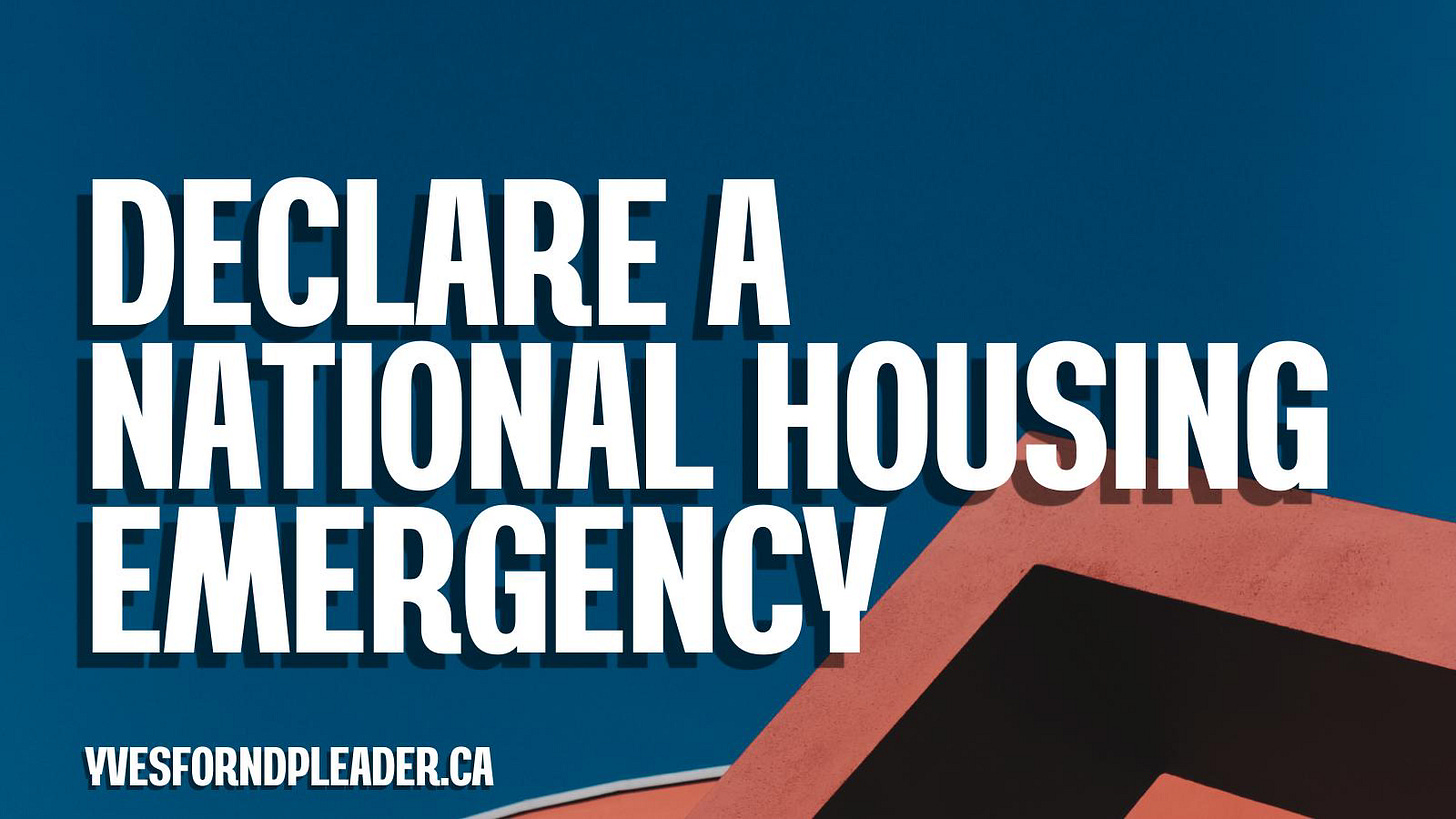Declare a National Housing Emergency “Homes Not Howitzers”
by Yves Engler
Officially Canada considers housing a right. But the government certainly doesn’t act as if it is a principle to follow, leaving over one hundred thousand without a home and many more to worry about their precarious situation.
As part of my bid to lead the NDP, I’m calling on the government to declare a state of emergency over housing. This dramatic move would boost government authority to eliminate an entire class of profiteers from the rental market. As part of addressing the housing crisis, the government should convert Real Estate Investment Trust (REIT) properties into housing cooperatives. Existing tenants would have a right of first refusal on co-operative membership for their residence.
REITs have taken up an ever-greater share of the rental market. Thirty years ago, these hedge fund type financial structures didn’t exist. Today REITs control over 200,000 units across the country. Along with other financial conglomerates, REITs control 20 to 30 percent of all “purpose-built” — constructed to be rented — units of rental housing in the country. Canada’s largest REIT, CAPREIT, controls 50,000 units and alongside other firms operate in an oligopolistic manner.
REITs have a fiduciary responsibility to maximize returns, which leads them to constantly raise tenants’ rents and fees. According to the office of the Federal Housing Advocate, “housing affordability stresses have increased wherever REITs are active.” A recently released study of REITs in Toronto found they and other financialized property conglomerates evicted tenants at a rate 1.5 times greater than corporate property chains, 2.5 times more than single-building owners and 2.7 times the rate in public housing.
REITs benefit from tax incentives effectively exempting them from paying corporate taxes if profits are distributed to investors. In turn many of those investors avoid paying income tax through various loopholes. Some of the least-taxed high-yield investments on the market, REITs starve the government of hundreds of millions in revenue, which could be invested in … housing.
It’s outrageous that our tax code subsidizes this type of financialization of housing. Homes are for people to live in, not for corporations to profit from. We must remove these profiteers from the industry entirely.
Turning REITs into co-ops is but one piece of my housing strategy. Hundreds of billions of dollars in public resources need to be put into building social and cooperative housing. The government should be building tens of thousands of new units every year.
But where would the money come from, some might ask.
Instead of funnelling a trillion dollars into the war economy over the next decade, prioritize housing. Call it “Homes not Howitzers”.
Building a single surface combatant vessel would cover the cost of constructing around 4000 units of housing. The government plans to build 15 of these vessels with Tomahawk missiles that can be fired against targets 1,700 kilometres away.
As part of building large numbers of social housing units, the federal government should prioritize funding projects on city or provincial lands currently devoted to cars in areas well serviced by pedestrian, cycling and mass transit infrastructure. Few measures better marry ecological and social justice than turning public land devoted to noisy, dangerous and polluting vehicles into social and co-op housing.
In Montreal René Levesque Street is a prime target of this type of “homes not hummers” transformation. In the 1950s, hundreds of buildings and homes were demolished to widen the street. If housing were to replace most of the roadway, thousands — probably tens of thousands — could gain access to affordable housing in an area with easy access to employment and services by foot and bike as well as to the city’s two main Metro lines.
Many other cars-for-affordable shelter exchanges could be subsidized by the federal government across the city and country. In Toronto the land destroyed by the centrally located Gardiner Expressway could house thousands and the same for the viaducts at the eastern edge of downtown Vancouver.
A bold housing strategy is a shield against rising right wing populism. Pierre Poilievre has successfully exploited anger, particularly among young men, over the issue. The housing crisis has spurred social malaise and a sense of disenfranchisement, which is enabling anti-immigrant sentiment.
So even those who’ve done well by the capitalization of housing should understand major reform is needed.
Across the country the number of unhoused has exploded in recent years. As many as a quarter million Canadians live in abject misery on the streets. Beyond the toll on each individual, the social costs are high.
It doesn’t have to be this way. During a recent speaking engagement in Oslo I visited Zurich, Gothenburg and Copenhagen. There are basically no unhoused people in those four cities. The contrast with Montreal, Toronto, Calgary and Victoria is remarkable.
Canada’s housing crisis is a national emergency.
To assist or learn more about my bid to lead the NDP check out yvesforndpleader.ca


